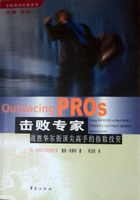Now take the general case pled against Shakespear as an enemy of democracy by Tolstoy, the late Ernest Crosbie and others, and endorsed by Mr Harris. Will it really stand fire? Mr Harris emphasizes the passages in which Shakespear spoke of mechanics and even of small master tradesmen as base persons whose clothes were greasy, whose breath was rank, and whose political imbecility and caprice moved Coriolanus to say to the Roman Radical who demanded at least "good words" from himHe that will give good words to thee will flatter Beneath abhorring. But let us be honest. As political sentiments theselines are an abomination to every democrat. But suppose they are not political sentiments! Suppose they are merely a record of observed fact. John Stuart Mill told our British workmen that they were mostly liars. Carlyle told us all that we are mostly fools. Matthew Arnold and Ruskin were more circumstantial and more abusive. Everybody, including the workers themselves, know that they are dirty, drunken, foul-mouthed, ignorant, gluttonous, prejudiced: in short, heirs to the peculiar ills of poverty and slavery, as well as co-heirs with the plutocracy to all the failings of human nature. Even Shelley admitted, 200 years after Shakespear wrote Coriolanus, that universal suffrage was out of the question. Surely the real test, not of Democracy, which was not a live political issue in Shakespear's time, but of impartiality in judging classes, which is what one demands from a great human poet, is not that he should flatter the poor and denounce the rich, but that he should weigh them both in the same balance. Now whoever will read Lear and Measure for Measure will find stamped on his mind such an appalled sense of the danger of dressing man in a little brief authority, such a merciless stripping of the purple from the "poor, bare, forked animal" that calls itself a king and fancies itself a god, that one wonders what was the real nature of the mysterious restraint that kept "Eliza and our James" from teaching Shakespear to be civil to crowned heads, just as one wonders why Tolstoy was allowed to go free when so many less terrible levellers went to the galleys or Siberia. From the mature Shakespear we get no such scenes of village snobbery as that between the stage country gentleman Alexander Iden and the stage Radical Jack Cade. We get the shepherd in As You Like It, and many honest, brave, human, and loyal servants, beside the inevitable comic ones. Even in the Jingo play, Henry V, we get Bates and Williams drawn with all respect and honor as normal rank and file men. In Julius Caesar, Shakespear went to work with a will when he took his cue from Plutarch in glorifying regicide and transfiguring the republicans. Indeed hero-worshippers have never forgiven him for belittling Caesar and failing to see that side of his assassination which made Goethe denounce it as the most senseless of crimes. Put the play beside the Charles I of Wills, in which Cromwell is written down to a point at which the JackCade of Henry VI becomes a hero in comparison; and then believe, if you can, that Shakespear was one of them that "crook the pregnant hinges of the knee where thrift may follow fawning." Think of Rosencrantz, Guildenstern, Osric, the fop who annoyed Hotspur, and a dozen passages concerning such people! If such evidence can prove anything (and Mr Harris relies throughout on such evidence) Shakespear loathed courtiers.
同类推荐
热门推荐
长三角海洋经济整合研究(谷臻小简·AI导读版)
本书提出了长三角海洋经济整合思路、整合格局和整合路径,重点对共建上海国际航运中心、优化海洋产业布局、加强海洋科技合作、推进海洋生态环境保护和治理以及完善海洋区域协调体制机制等路径进行深入分析,为长三角各地方政府加强海洋区域合作提供决策参考。击败专家:战胜华尔街顶尖高手的指数投资
本书探讨如何运用股票指数投资获利。不管你是想购买一只指数基金然后坐享其成还是自选一组股票进行投资组合战胜市场、超越指数,你都必须了解指数。指数是投资者的路标、方向标和地图。在汽车行程中——不管是短程旅行还是长途跋涉,了解路标和地图是大有裨益的。是啊,有些人仅凭幸运的猜测、直觉或运气就到达了目的地,但其他人却迷了路。投资中的迷路既耽误时间也浪费钱财。















